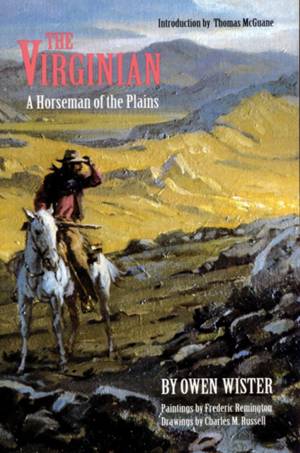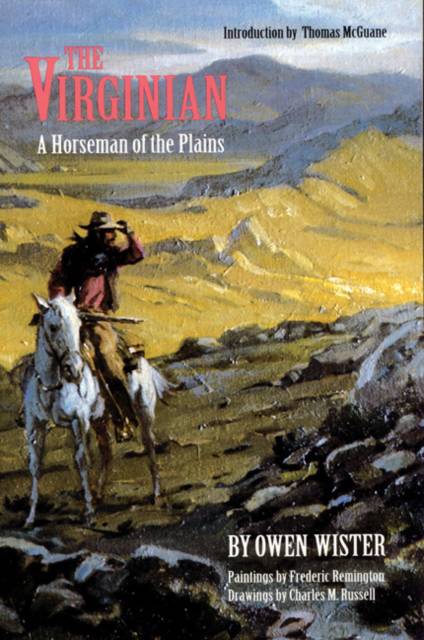
- Retrait gratuit dans votre magasin Club
- 7.000.000 titres dans notre catalogue
- Payer en toute sécurité
- Toujours un magasin près de chez vous
- Retrait gratuit dans votre magasin Club
- 7.000.0000 titres dans notre catalogue
- Payer en toute sécurité
- Toujours un magasin près de chez vous
33,95 €
+ 67 points
Format
Description
Dime novels had featured some rather scrawny horse-bound tenders of cattle, but not until 1902 did the cowboy become a fully realized article of American culture. That year Owen Wister, a native of Philadelphia, published the novel that established the conventions of the western. An immediate best seller, it has never faded from public consciousness. Suddenly there was the natural aristocrat, the Virginian, who faced down the archetypal villain. Trampas, flinging at him the unforgettable words "When you call me that, smile!" There was the eastern schoolteacher, Molly, far from being a wilted flower. They moved in the raw, bracing atmosphere that generations of readers and moviegoers would come to expect from westerns. To read The Virginian, again or for the first time, is to enter a cultural phenomenon.
This Bison Book makes available once more the memorable 1929 edition that brought together the art of Frederic Remington and Charles M. Russell. It adds an introduction by one of today's most brilliant creators of rugged individualists, Thomas McGuane. The author of Nobody's Angel (1982) and Keep the Change (1989), McGuane shows how The Virginian "bears all the advantages and disadvantages of being a precursor."
Spécifications
Parties prenantes
- Auteur(s) :
- Editeur:
Contenu
- Nombre de pages :
- 452
- Langue:
- Anglais
Caractéristiques
- EAN:
- 9780803297364
- Date de parution :
- 01-08-92
- Format:
- Livre broché
- Format numérique:
- Trade paperback (VS)
- Dimensions :
- 136 mm x 203 mm
- Poids :
- 508 g

Les avis
Nous publions uniquement les avis qui respectent les conditions requises. Consultez nos conditions pour les avis.






